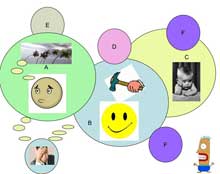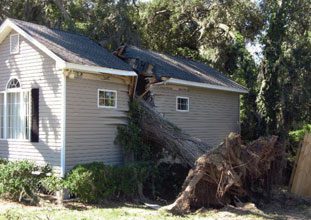 Worrying about what to worry about has weighed on my mind lately. I think it has to do with trying to find a happy medium, the appropriate zone between worrying too much (a la Woody Allen or maybe Don Knotts) or too little (cf. Alfred E. Newman).
Worrying about what to worry about has weighed on my mind lately. I think it has to do with trying to find a happy medium, the appropriate zone between worrying too much (a la Woody Allen or maybe Don Knotts) or too little (cf. Alfred E. Newman).
We’ve all known the tensions between fretting over things that never materialize on the one hand, versus never giving a thought to serious issues that turn into problems you could have done something about in advance.
As Chicago Tribune columnist and Pulitzer Prize winner (not to mention author of the Brenda Starr comic strip!) Mary Schmich noted, “Don’t worry about the future. Or worry, but know that worrying is as effective as trying to solve an algebra equation by chewing bubble gum. The real troubles in your life are apt to be things that never crossed your worried mind, the kind that blindside you at 4 p.m. on some idle Tuesday.”
She takes an interesting stance, but the real issue may lie in knowing where to draw the line so that you worry mainly about the things that deserve it and that you can exercise some degree of control over. Against this goal, it makes sense to list the categories of concern:
A. should have worried about it and did worry
B. should have worried and didn’t
C. shouldn’t have and did
D. shouldn’t have and didn’t
E. maybe should have and did
F. maybe should have and didn’t
Whew, my head is starting to spin (but I’ll try not to worry about it). Perhaps it’s best to just focus on a few of these and not worry so much about the rest. Let’s start with A and D and just give ourselves a pat on the back since we apparently got these right. E and F are tricky but they imply that we lacked enough information to make a completely confident decision. Fair enough, but it sure creates a strong case for getting all the clean, reliable data together and distilled that you can. Without going overboard, of course, or becoming sleepless because you’re fretting over whether you’ve really done all that’s reasonable in order to pull the facts together. Which would defeat the whole purpose of the exercise.
Category C, shouldn’t have worried but did anyway, strikes at a basic definition of paranoia. How many hours people worldwide spend in this state is nearly incalculable, but I’ll wager that on an annual basis it’s in the hundreds of billions. A lot of psychiatrists make a fair amount of their living off these hours, not to mention the pharmaceutical industry. But this category is a pesky one because it also includes what some call warm worrying, the kind that makes perfect sense right up until the point where it doesn’t (will my children get into a good school, will I pass that exam, can I pull off this party successfully—and on and on) and in many cases is subject to immediate replacement by another object of anxiety. A good case of worry bubbles having bubble babies.
Ah, now for category B, the dreaded “should have worried and didn’t.” These worries can carry consequences ranging from relatively mild (gee, I should have remembered to bring bug spray, pack some extra underwear, polish the silver, send a reminder note to Aunt Polly, etc.) to terrible. Or even fatal, as in: should have worried more about safety and worn my seatbelt, gotten better prepared for that hurricane, had the brakes checked, gotten concerned earlier about some risky lifestyle choices like smoking or a high fat diet. I guess there’s also a more literal bubble example here, as when scuba divers come up from the depths far too fast and get the bends or decompression sickness—gas bubbles in their blood that cause great pain if not death. Phew.
Which brings me back to Ms. Schmich and her comment about not worrying too much about the future. My take is that it only makes sense to focus one’s worrying on the things we can really have an affect on or at least bend the outcome curve gently in our favor. In this scheme, worrying about our plane crashing as it’s taxiing down the runway, about winning the lottery, or whether audiences will like your latest creation which is about to be released is a waste of time. Unless you just like the state of anxiety that’s thereby created as it translates into a nice adrenaline rush, interesting conversation topics, or other thinly veiled positive experiences.
No one, not even neurotics – the worrying professionals – can worry about everything, so we have to pick and choose. And clearly we can’t worry about nothing without slipping into a coma. So we all need a workable system that leads to rational worry about the right stuff, the sensible issues, and appropriate corrective action, planning and timing. (Scarlett O’Hara had it at least partly right when she frequently decided to worry about something tomorrow rather than be overwhelmed by it today.) The topics to consider are practically endless, from health risks to where to live and work, having and raising children, getting one’s team to the finals or company to the top, maybe just staying out of serious trouble. Sounds so simple, doesn’t it? No worries, mate.
Maybe my real worry is that it often takes the better part of a lifetime to crack the code and figure out what to really worry about. But what an interesting journey getting there.







